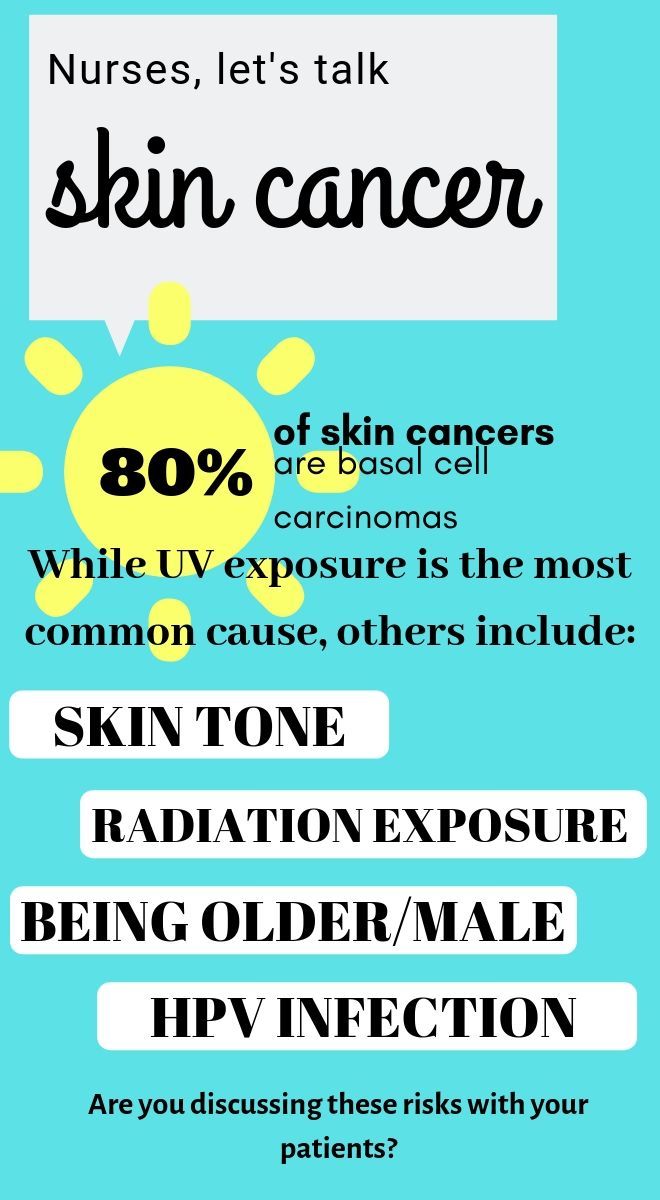A Note to Nurses on Skin Cancer Awareness Month
May is Skin Cancer Awareness month. What are some of the important conversations nurses should be having with their patients about the disease?

May is Skin Cancer Awareness month. Nurses can be key educators for patients — and their families – about the importance of sun safety, as well as the other risk factors for melanoma and other skin cancers.
According to the American Cancer Society (ACS), skin cancer is the most common type of cancer in the United States, with about 8 of every 10 being basal cell carcinomas. While ultraviolet (UV) exposure is the most common (and most discussed) cause, there are other risk factors that nurses should discuss with their patients.
Other Risks Include:
- Skin tone
- Previous radiation exposure
- Exposure to chemicals
- Previous skin cancer diagnosis
- Being older/male
- Having the HPV infection
- Smoking
Additionally, according to the Dutch DCOG-LATER cohort study, childhood cancer survivors who lived at least 5 years past their diagnosis may be at an increased risk for developing skin cancer compared to the general population.
Looking Ahead
The ACS explained that skin cancer instances are increasing across the country, due to a number of reasons, including better detection, people getting more exposure to the sun, and a longer lifespan.
The good news is that the treatment field for skin cancer and melanoma is expanding rapidly — and it’s important for oncology nurses to keep up. Thanks to new treatment types such as immunotherapy agents, BRAF and MEK inhibitors, and combinations regimens, response rates continue to climb in people with melanoma.
As treatments for these patients continue to expand, it is particularly important for nurses to be aware of adverse events (AEs) that can come along with them, especially as each class of drug may have its own unique AE profile.
Cemiplimab as Adjuvant Therapy Improves DFS in High-Risk Cutaneous Squamous Cell Carcinoma
January 20th 2025Adjuvant cemiplimab demonstrated a statistically significant improvement in DFS compared to placebo in post-surgical patients with high-risk CSCC, impacting post-operative care considerations.


